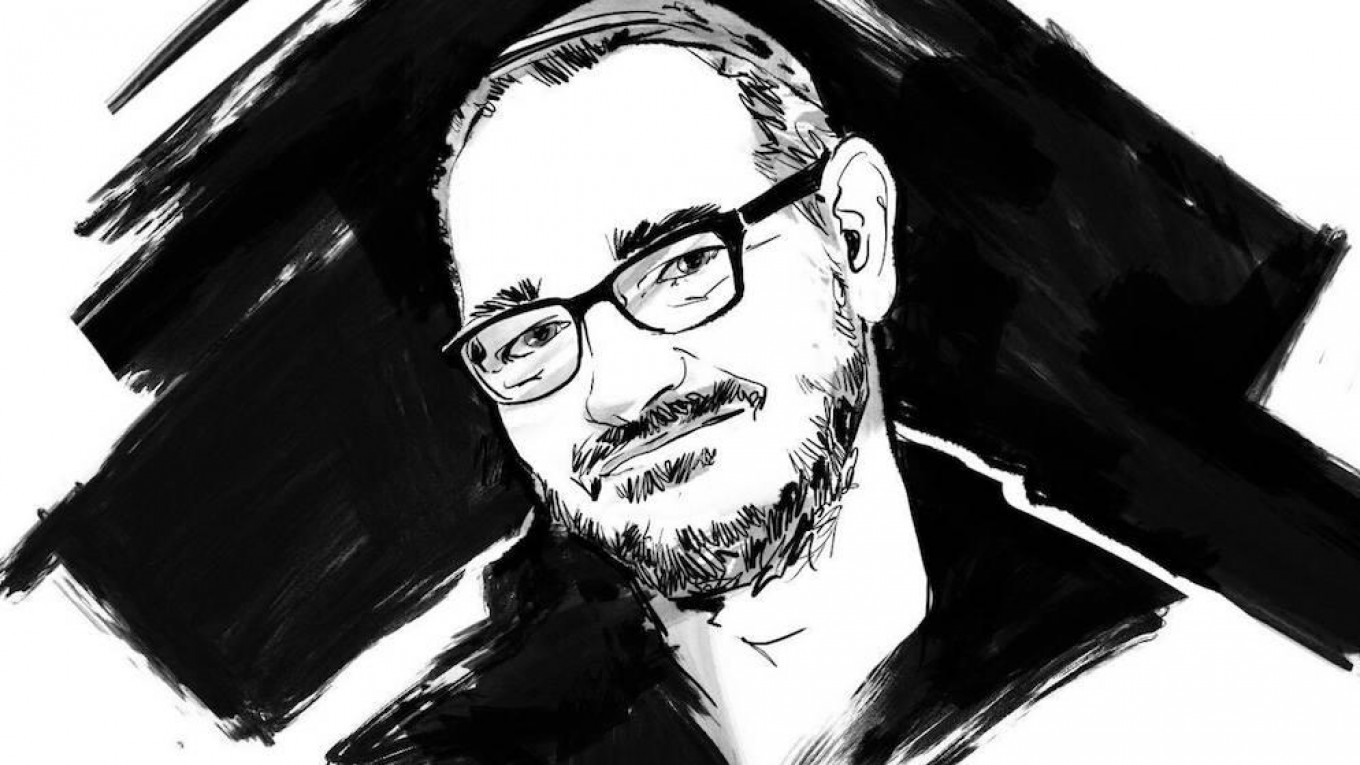When Anton Nossik, the “godfather” of the Russian Internet, died from a heart attack in the early hours of July 9, heartfelt condolences poured in across generations and political divides.
The poet Lev Rubinshtein remembered him from childhood as a “wunderkind.” Prime Minister Dmitry Medvedev described Nossik as “bright” and “talented.” Opposition leader Alexei Navalny said Nossik was his “mentor.”
“He was a very open person,” prominent blogger Ilya Varlamov told The Moscow Times. “Despite his own views, he found a common language with everyone he spoke to. He had a talent for bringing people together.”
Although Nossik graduated from a medical institute in Moscow, he dedicated his career to journalism. He started out covering medicine and economics for the Russian press when he emigrated to Israel in 1990.
On his return in 1997, he pioneered the Russian Internet, then still in its infancy.
“Anton was absolutely in the right place when this strange phenomenon [the Internet] came up, which was initially incomprehensible to many,” Gleb Pavlovsky of the Foundation for Effective Politics think-tank, told The Moscow Times. “It was a world of enthusiasts, and everyone understood it in their own way.”
At the same time, Nossik’s personal blog on LiveJournal was quickly becoming among the most widely read in the country. By the time of his final post on July 6, the blog was ranked 12 on LiveJournal. His cutting commentary spared no one.
“He was intelligent and free even as a little boy,” a family friend Alexandra Gorokhovskaya told The Moscow Times. “His most striking characteristic was his inner freedom,” she said. “He irritated many people, but he just spoke the truth as he saw it.”
That also brought trouble. Even though his posts were often critical of the Kremlin, it was a pro-government opinion piece that almost landed him in jail.
In an October 2015 blog post, Nossik praised Russia’s airstrikes on Syria, which, according to the Kremlin, were exclusively targeting Islamic State terrorists. Nossik, who wore his Jewish heritage proudly, argued civilian deaths were an acceptable price to pay for the annihilation of a country he compared to Nazi Germany.
Many in Nossik’s own circles were quick to condemn the post. But he was unfazed by the criticism and the extremism charge brought against him. Rather, he reacted with his quintessential brand of humor and cynicism. In an interview with The Moscow Times, he said he described the joy of reading prison literature in preparation for jail time.
He eventually got away with a fine.
Nossik is best known for his work on Russian Internet news sites. Working with web designer Artemy Lebedev, he developed Sitilain and Netskeit, two of the first Internet providers in Russia, founded in 1996 and 1997 respectively.
A few years later, Nossik launched Russia’s first online news sites — Gazeta.ru, Lenta.ru, Vesti.ru, and Inosmi.ru – with support from Pavlovsky of the Foundation for Effective Politics.
Pavlovsky told The Moscow Times Nossik aspired to create and maintain a smooth and pleasant working atmosphere. “He wasn’t a workaholic maniac.”
The journalist and blogger Maxim Kononenko, who worked with Nossik, compared him to Alexander Pushkin, the father of Russian literature.
“Without Nossik our Internet would be entirely different,” Kononenko said on Govorit Moskva radio. Russia’s entire mediascape was derived by Nossik’s inventions, he said. “It’s impossible to overestimate his role in the development of the Internet we have now.”
Later in his career, Nossik headed projects on Rambler.ru and SUP Media, which owned the popular social network LiveJournal from 2006 to 2013. Even though he ultimately distanced himself from major projects online, he continued to be a resource for colleagues who turned to him regularly for advice.
“[Nossik] was well-versed in the Internet, technology and mass media,” blogger Varlamov told The Moscow Times. “He helped with all kinds of questions. He had a massive level of experience in this sphere.”
In addition to his work with the Russian Internet, Nossik was involved in political and social causes. He was a member of the public council of the Russian Jewish Congress, participated in conferences on the Internet and propaganda, and was a co-founder of the foundation Pomogi.org, a site that solicits donations, primarily to provide medical aid to children and support families.
The memorial service for Anton Nossik will be held on July 11 at 11 a.m. at the Central House of Writers in Moscow.
With additional reporting by David Kharebov.
A Message from The Moscow Times:
Dear readers,
We are facing unprecedented challenges. Russia's Prosecutor General's Office has designated The Moscow Times as an "undesirable" organization, criminalizing our work and putting our staff at risk of prosecution. This follows our earlier unjust labeling as a "foreign agent."
These actions are direct attempts to silence independent journalism in Russia. The authorities claim our work "discredits the decisions of the Russian leadership." We see things differently: we strive to provide accurate, unbiased reporting on Russia.
We, the journalists of The Moscow Times, refuse to be silenced. But to continue our work, we need your help.
Your support, no matter how small, makes a world of difference. If you can, please support us monthly starting from just $2. It's quick to set up, and every contribution makes a significant impact.
By supporting The Moscow Times, you're defending open, independent journalism in the face of repression. Thank you for standing with us.
Remind me later.






